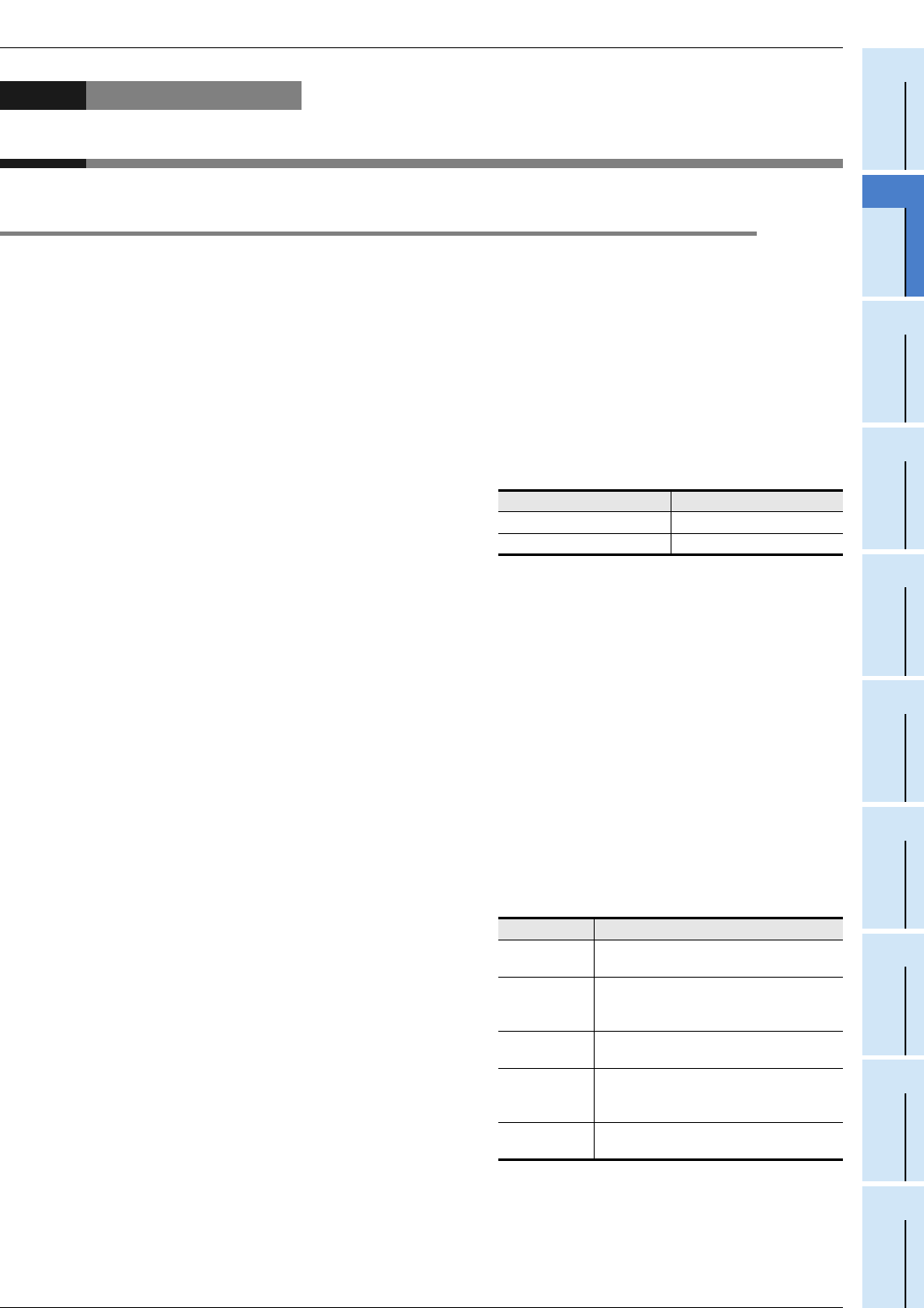
2 Features and Part Names
2.1 Major Features
19
FX3S Series Programmable Controllers
User's Manual - Hardware Edition
1
Introduction
2
Features and
Part Names
3
Product
Introduction
4
Specifications
5
Version and
Peripheral
Devices
6
System
Configuration
7
Installation
8
Preparation and
Power Supply
Wiring
9
Input Wiring
10
High-Speed
Counters
2. Features and Part Names
2.1 Major Features
1. Basic functions
[Up to 30 input/output points]
Main units are available in models of 10, 14, 20
and 30 total input/output points.
[Memory capacity]
The PLC has a 16 K-step EEPROM memory.
(Program capacity is 4 K-steps.)
[Built-in USB port]
The PLC has a built-in USB port for the
programming communication function to enable
high-speed communication at 12 Mbps.
[Built-in RUN/STOP switch]
The PLC can be started and stopped with the
built-in switch.
RUN and STOP commands can be given to the
PLC through a general-purpose input terminal or
peripheral device.
[Built-in Variable analog potentiometers]
(except FX
3S-30M/E-2AD)
The PLC has two built-in variable analog
potentiometers available for adjusting the timer
set time.
Up to 8 points can be added by using the
optional analog potentiometer expansion board.
[Built-in analog inputs]
(only FX
3S-30M/E-2AD)
The PLC has two built-in analog inputs available
for voltage input.
Additional analog input points can be added by
using an optional expansion board or special
adapter.
[Writing during RUN]
The programming software for personal
computer enables you to modify the program
while the PLC is running.
[Built-in clock function]
The PLC has a clock function to control the time.
[Programming tool]
Use a version of a programming tool supporting
the FX
3S.
Refer to Chapter 5.
[Remote debugging of program]
Programming software enables you to remotely
transfer programs and monitor PLC operation
through a modem connected to the RS-232C
expansion board or the RS-232C communication
special adapter.
2. Input/output high-speed processing
functions of main unit
[High-speed counter function]
- 1-phase 60 kHz × 2 points + 10 kHz × 4 points
- 2-phase 30 kHz × 1 points + 5 kHz × 1 point
Refer to Chapter 10 and Programming Manual.
[Pulse catch function]
Signals with short ON width or OFF width can be
captured without a complicated program.
Refer to Chapter 9 and Programming Manual.
[Input interruption function]
The PLC can process interruption routines with
higher priority using external signals whose
minimum ON duration or OFF duration is 10 s
(X000, X001) or 50 s (X002 to X005).
(The timer interruption function is also provided.)
Refer to Chapter 9 and Programming Manual.
[Pulse output function]
When output terminals in the transistor output
type main unit are used, pulses of up to 100 kHz
can be output simultaneously to 2 axes (Y000
and Y001).
Using a number of instructions programming is
simplified.
Refer to Positioning Control Edition.
[Various positioning instructions]
Refer to Positioning Control Edition.
Input terminal Signal ON/OFF width
X000, X001 10 s
X002 to X005 50 s
Instruction Description
DSZR
Mechanical zero return instruction with
DOG search function.
ABS
Instruction to read the current value from
our servo amplifier with absolute position
(ABS) detecting function.
DRVI
Positioning (relative positioning) to specify
the movement from the current position.
DRVA
Positioning (absolute positioning) to
specify the target position based on the
current value 0.
PLSV
Instruction to change the pulse train output
frequency.


















